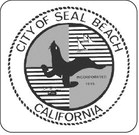What to do when a loved one dies: Help in a hard transition
SENIOR RESOURCE-PART 2
This information is provided as part of the Senior Focus Resource by Robann Arshat, GRF member resources liaison. Part 1 ran Dec. 8 and covered needed documents, benefits, wills, trust, probate and federal estate taxes. Part 2 of the installment covers state taxes, changing ownerships and titles, credit cards, general finances and professional assistance.
State Estate Taxes
In California any estate which pays a federal estate tax must also file a state estate tax. This amount will be paid by the estate to the state in which the deceased lived. For details on state estate tax, contact: Controller’s Office
State Capitol Room 1114 Sacramento, CA, 95814 You can also contact your own trust attorney, tax attorney or tax advisor.
State Inheritance Tax
California does not have an inheritance tax, estate tax or gift tax. In other words, inheritance is not subject to tax in California. If you are a beneficiary, you will not have to pay tax on your inheritance. However, California residents are subject to federal laws governing gifts during their lives and their estates after they die. Each California resident may gift a certain amount of property in a given tax year, tax free. Beneficiaries who live in another state will follow inheritance tax requirements, if any, for that state.
Income Taxes
The federal and state income taxes of the deceased are due for the year of death. The taxes are due on the normal filing date of the following year unless an extension is requested.
The spouse of the deceased may file jointly for the year of death. A spouse with dependent children may file jointly for two additional years. The IRS offers a booklet, publication No. 559, “Information for Survivors, Executors and Administrators,” which may be helpful. You can obtain this booklet by contacting your local IRS office.
Internal Revenue Service 501 W. Ocean Blvd, Long Beach, CA 90802 562-980-4194 Changing Ownership or Title
You may need to transfer ownership or change title on property, or revise documents after a death. Some items to check include:
• Insurance policies For policies held by the spouse of the deceased, beneficiaries may need to be changed. Especially for life insurance, you may decide that you no longer need to have the same amount if you do not have dependents. Auto insurance and home insurance may also need revision. In the case of a spouse, the deceased may have covered your medical insurance through work. You may need to purchase your own medical insurance. Check with the employer to see if you can continue with their group health insurance plan, which may be less expensive. Contact the company issuing the policy to make any changes, or for more information.
• Auto Titles The title of the car owned by the deceased may need to be changed. Contact your State Department of Motor Vehicles: Department of Motor Vehicles, Long Beach, 3700 E Willow St., Long Beach, CA 90802, 800-777-0133; Department of Motor Vehicles, Westminster, 13700 Hoover St., Westminster, CA 92683, 800-777-0133.
• Will or Trust Your will may have passed property on to the deceased and should be updated. You may want to contact your attorney for assistance.
• Bank Accounts, Stocks, Bonds
If you had a joint bank account with the deceased, it will automatically pass to you. You should check with the bank representative to change the title and signature card on the account. To change stocks or bond titles, check with your stockbroker. If the bank account was held only in the name of the deceased, those assets will have to go through probate. An exception to this would be trust accounts.
• Safe Deposit Box If the box was rented only in the name of the deceased, it will require a court order to open the box. Only the will or any other materials pertaining to the death can be removed until the will or trust has been probated.
In California, if the safe deposit box was rented in joint names, you will need a letter from the Superior Court, Probate Division to get into the box. Contact the Court for details.
• Credit Cards
Credit cards that were held exclusively in the name of the deceased should be canceled. Any payments due on these credit cards should be paid by the estate.
In the case of a spouse, you may have credit cards in both names, and/or you may have used cards which listed only the name of the deceased. In this situation, you will want to try to make payments to keep your own good credit rating. You should begin to notify the credit card companies that your spouse is deceased, and that the card should list your name only. Some people, particularly widows, may experience difficulties in getting a new card if they do not have their own credit rating. When applying for a card, be sure to inform the lender about credit cards you shared with your spouse, even if your name was not listed.
General Finances
Debts owed by the deceased will be the responsibility of the estate and should be forwarded to the personal representative or executor who is settling the estate. However, debts which are jointly owed, particularly mortgage payments and utility or phone bills, should generally be paid by the survivor to keep a good credit rating. Most companies will ask for a death certificate.
An extra word of caution to widows and widowers: it is generally suggested that you do not immediately make permanent significant financial decisions, such as selling your home, moving, or changing jobs. You will need some time to consider your situation before you can make these decisions responsibly. If at all possible, don’t rush into a decision you might later regret.


